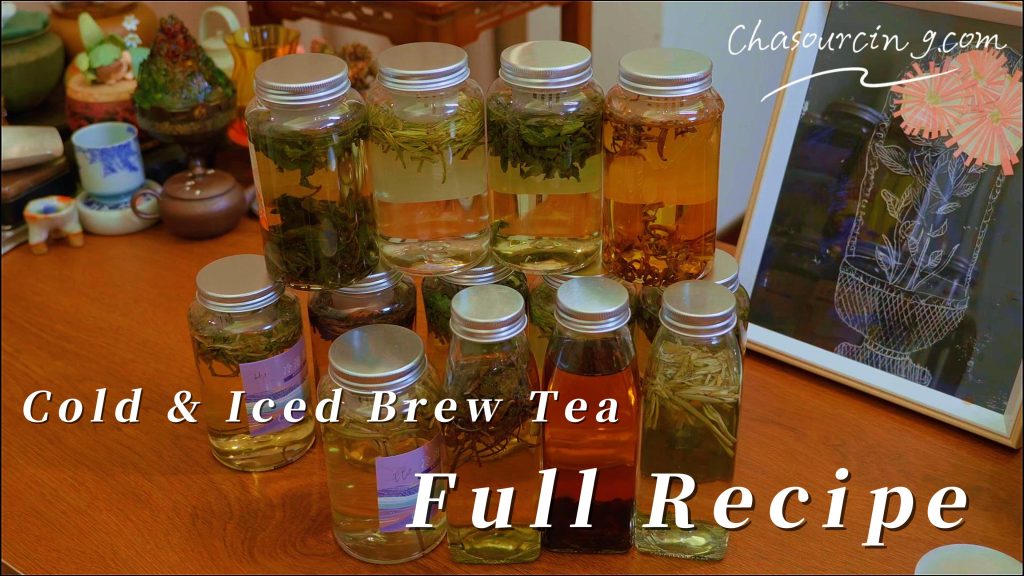Introduction
Cold brewing tea has become an increasingly popular way to enjoy a refreshing and flavorful beverage. Unlike traditional hot brewing, cold brewing brings out the natural sweetness and delicate flavors of tea, without the bitterness that often comes from using hot water. But many tea lovers wonder: Can you cold brew any tea? The answer is more nuanced than a simple yes or no. In this article, we’ll explore can you cold brew any tea, which teas are best for cold brewing, whether you can use regular tea bags, and what types of tea you should not cold brew. Whether you’re a green tea enthusiast or a fan of oolong, this guide will help you get the most out of your cold brewing experience.
The above video gives a brief discussion of what types of tea are suitable for cold brewing. Now, we will give a breakdown of the topic Can You Cold Brew Any Tea in detail:
Can You Cold Brew Any Regular Tea?
Cold brewing is a gentle process that extracts flavor slowly, which can enhance certain teas while others might not develop the full depth of taste you’re looking for.
Short Answer
Yes, most teas can be cold brewed, but some perform better than others. Lighter teas like green and white teas tend to shine with cold brewing due to their delicate, fresh flavors. The cold water brings out their natural sweetness while avoiding bitterness. In contrast, heavily fermented teas, like Pu-erh or very dark teas, may taste flat when cold brewed, as their bold flavors need heat to fully develop. Ultimately, the best tea for cold brewing depends on the experience you’re looking for—light and refreshing or rich and bold. Experimenting with different teas can help you find your perfect cold brew
What to Consider When Deciding Which Tea to Cold Brew
To help you choose the right tea for cold brewing, here are a few key factors to consider.
Type of Tea: Green, black, oolong, white, and herbal teas all react differently to cold brewing. Green and white teas tend to release lighter, fresher flavors, while black and oolong teas bring out richer, more robust notes. Herbal teas can vary greatly depending on their ingredients, so they’re worth experimenting with.
Flavor Profile: Teas with naturally delicate, floral, or sweet notes tend to perform best in cold brewing. The slow extraction process enhances these flavors while reducing bitterness, making them perfect for a refreshing cold drink.
Caffeine Sensitivity: Cold brewing extracts less caffeine compared to hot brewing. If you’re sensitive to caffeine, cold brewing can be a great way to enjoy teas without the stimulating effects. Lighter teas, like green and white teas, typically have lower caffeine levels, which are further reduced by the cold brew method.
Quality of Tea: High-grade teas can sometimes be too subtle for cold brewing. The complex flavors that develop through hot brewing may not fully emerge with cold water. While it’s tempting to use the best teas, cold brewing is often more suited to mid-range or even lower-grade teas that may taste harsh when brewed with hot water but shine when brewed cold
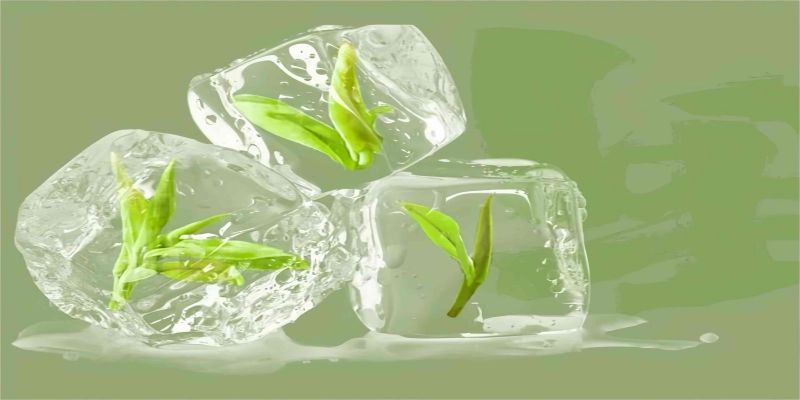
Can You Cold Brew Green Tea?
Yes, you can absolutely cold brew green tea, and it’s one of the best types of tea for this method.
Why Cold Brew Green Tea?- Emphasized Freshness
The key flavor that cold brewing green tea emphasizes is its freshness—referred to as “鲜” in Chinese, which translates to a crisp, invigorating quality. Cold water slowly extracts the delicate, vegetal notes of the tea, making the resulting brew light and refreshing without the bitterness that sometimes comes from hot brewing. The fresh, grassy flavors of green tea become even more vibrant, providing a tea that is cooling, smooth, and pure in taste. It feels as though the tea’s essence is released gradually, offering a revitalizing experience that’s perfect for a hot day.
The cold brewing process preserves the natural sweetness of green tea while minimizing the extraction of tannins, which can make tea taste astringent. This creates a tea that feels smooth and soothing, with a refreshing aftertaste that lingers in your mouth. The freshness is what stands out the most, making cold-brewed green tea a crisp, clean, and almost uplifting beverage.
If you want to learn more about this topic, you can read our article : How to Cold Brew Green Tea. You can also read our article Is It Better to Drink Green Tea Hot or Cold
What Green Tea Most Suitable for Cold Brew
For the best experience, choose high-grade green teas with tender leaves. Higher-quality leaves will provide a fuller, richer taste that holds up well to the cold brewing process. Here are some great green tea options for cold brewing:
Sencha: This Japanese green tea offers a grassy, fresh flavor profile that cold brewing brings to life. Cold-brewed Sencha has a clean, slightly sweet taste, with a sharp freshness that is both crisp and cooling. It’s light yet flavorful, perfect for a refreshing summer drink.
Longjing (Dragon Well): Known for its smooth, nutty, and slightly sweet flavor, cold-brewed Longjing enhances the tea’s soft, chestnut notes while bringing out a fresh green quality. The cold brewing process helps mellow any bitterness, resulting in a smooth, refreshing tea that’s easy to enjoy.
Biluochun: This Chinese green tea is characterized by its floral and fruity fragrance. When cold brewed, Biluochun produces a delicate, sweet tea with soft fruity undertones and a light, refreshing aroma. It’s gentle yet flavorful, perfect for those who enjoy more subtle tea experiences.
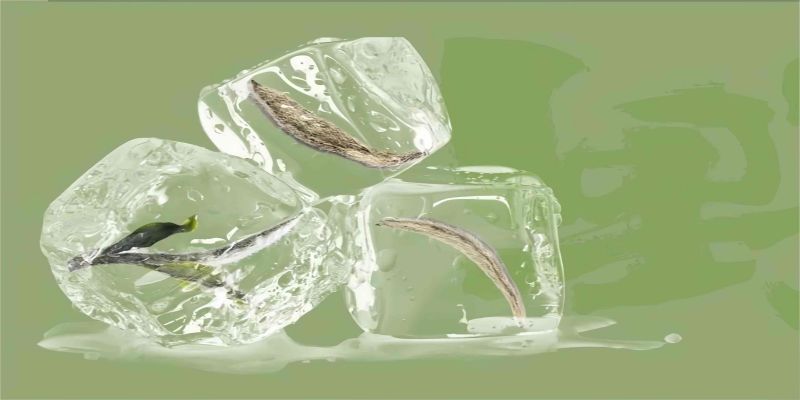
Can You Cold Brew White Tea?
Yes, white tea is one of the best candidates for cold brewing.
Why Cold Brew White Tea?- Emphasized Sweetness
Known for its light, delicate flavors, white tea’s minimal processing preserves the natural sweetness and subtle floral notes, which are enhanced through cold brewing. Cold water extraction brings out the fresh, sweet, and mild flavors of white tea while keeping its natural astringency to a minimum. This process results in a crisp, refreshing drink that is gentle on the palate, making white tea an ideal choice for hot weather.
One of the key benefits of cold brewing white tea is that it highlights its soft, mellow characteristics without overwhelming the drinker. The slower extraction ensures that the tea’s gentle aromas and sweet undertones are fully appreciated, making the tea taste smooth and naturally sweet, with a lingering freshness that feels almost cleansing
2 White Tea Most Suitable for Cold Brewing & Steeping
For cold brewing, choosing fresh, high-grade white teas is essential to get the most out of their delicate flavors. Here are the best white teas for cold brewing:
Silver Needle (Baihao Yinzhen): As one of the highest grades of white tea, Silver Needle is composed of young, tender buds. When cold brewed, it produces a tea that is incredibly smooth, with sweet, floral notes. The flavor is light and refreshing, with a natural sweetness reminiscent of honeysuckle or melon. Silver Needle’s minimal oxidation allows its fresh, crisp taste to shine, making it a perfect cold brew choice for those who enjoy subtle yet elegant flavors.
White Peony (Bai Mudan): Slightly more robust than Silver Needle, White Peony contains a mix of buds and leaves, giving it a slightly fuller body while still maintaining a delicate, sweet profile. Cold brewing White Peony results in a tea that is light, with soft floral notes and a touch of sweetness. Its flavor is richer compared to Silver Needle, but still gentle, making it an excellent choice for cold brewing.
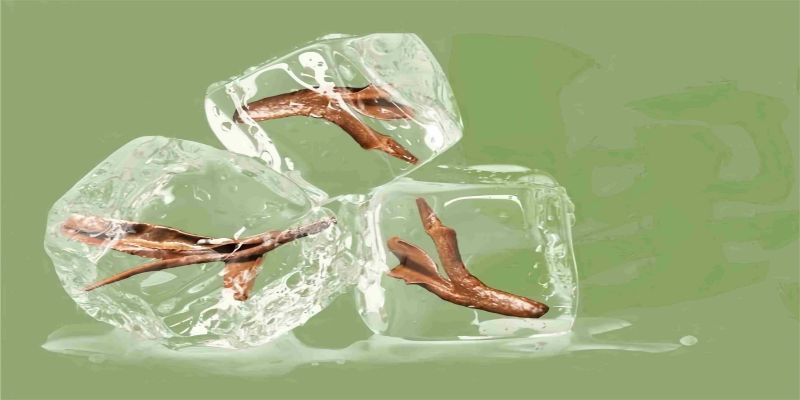
Can You Cold Brew Black Tea?
Yes, black tea can be cold brewed, and it results in a smoother, less bitter tea compared to hot brewing.
Why Cold Brew Black Tea?- Enhanced Boldness
Black tea, known for its strong and bold flavors, can sometimes become overly astringent when steeped in hot water for too long. Cold brewing, on the other hand, gently extracts the flavor compounds from black tea leaves, leading to a more balanced and naturally sweet drink with reduced bitterness and astringency. Cold-brewed black tea typically yields a richer, fuller body while maintaining a smooth texture that’s perfect for iced tea enthusiasts.
Black tea’s boldness is softened through cold brewing, allowing you to enjoy its deep, robust flavors without the harshness that can come from hot water extraction. The slower process highlights black tea’s natural sweetness, with notes of honey, malt, or fruit becoming more pronounced.
2 Black Tea Most Suitable for Cold Brewing
When choosing black tea for cold brewing, it’s best to go for high-aroma varieties that can offer a rich flavor profile without becoming overly bitter. Here are some top black teas for cold brewing:
Jin Jun Mei: A premium Chinese black tea, Jin Jun Mei has a naturally sweet, honey-like flavor with hints of malt and fruit. When cold brewed, it develops a rich, smooth tea that is sweet without any bitterness. The slow extraction enhances the tea’s natural fruity and honeyed notes, making it an ideal choice for a refreshing cold drink.
Dianhong: Known for its strong malty and earthy flavor, Dianhong is a high-quality black tea from Yunnan province. Cold brewing Dianhong creates a full-bodied tea with deep, malty notes balanced by a light sweetness. It’s a great option if you’re looking for a bold yet smooth cold-brewed tea with a rich, satisfying finish.
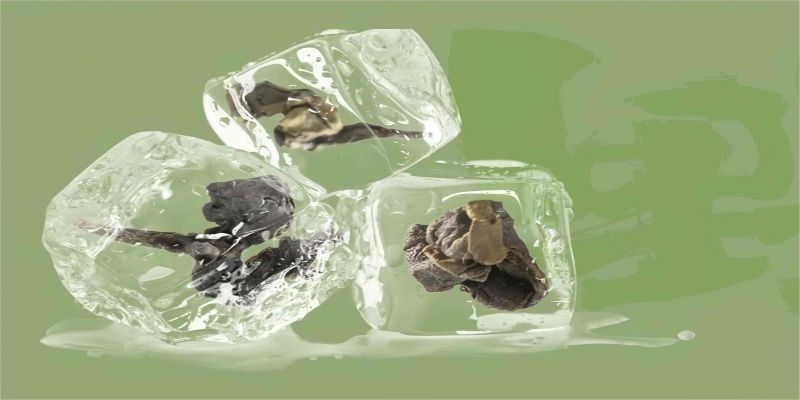
Can You Cold Brew Any Oolong Tea?
Oolong tea can be suitable for cold brewing, but with some important considerations. Here you have to be cautious while considering “Can you make oolong tea with cold water?“
Four Oolong Tea Most Suitable for Cold Brewing
Yancha (Rock Tea) and Phoenix Dan Cong: These teas have a moderate fermentation level, which allows them to maintain a bold flavor and high fragrance when cold brewed. Their tea liquor typically takes on an amber or orange hue, and the flavor is rich, fragrant, and complex. These types of oolong tea offer a variety of aromas, from fruity to floral, making each cup interesting and far from the one-dimensional taste found in bottled iced teas.
Tieguanyin and Taiwanese High Mountain Oolong: These teas are also ideal for cold brewing, offering a floral, sweet experience. The cold brew process preserves their delicate aromas, resulting in a smooth and refreshing drink with a subtle sweetness. However, because they are lightly fermented, the content of unoxidized polyphenols is higher, which means they might be slightly more stimulating for the stomach, especially for those sensitive to astringency
Oolong Teas That Are Not Suitable for Cold Brewing
While some oolong teas work well for cold brewing, others may not be as pleasant:
Heavily Roasted or Heavily Fermented Oolongs: These types of oolongs, such as traditional Wuyi rock teas with a heavy roast or more fermented dark oolongs, are not ideal for cold brewing. Their strong, roasted, and earthy flavors often require heat to fully develop. When cold brewed, these teas may taste flat, overly bitter, or lack the depth of flavor that makes them enjoyable when brewed hot.
Low-Oxidation, Delicate Oolongs (Other than Tieguanyin and Taiwanese High Mountain Oolong): While Tieguanyin and Taiwanese High Mountain Oolong can work for cold brewing, other lightly oxidized oolongs with low maturity leaves may become too astringent or sharp when cold brewed, causing discomfort, especially to those with sensitive stomachs. These teas often release too many unoxidized polyphenols when brewed cold, making them less suitable for this method.
What Tea You Should Not Cold Brew?
While cold brewing is a great method for many teas, some don’t develop their flavors well in cold water. Here are the types of teas that may not be ideal for cold brewing:
Heavily Fermented Teas
- Examples: Aged Pu-erh, other dark fermented teas like Liu Bao or Heicha.
- Reason: These teas are known for their deep, earthy, and complex flavors, which develop through aging and fermentation. The process of releasing these flavors typically requires hot water to break down the tea’s structure and extract its full character. Without heat, these rich flavors remain locked in the leaves.
- Cold brewing result: When cold brewed, heavily fermented teas tend to taste bland or lack the bold, robust notes they are known for. The deep, earthy flavors you’d expect from these teas won’t come through as they do with hot brewing, leading to a less satisfying cup. If you’re a fan of the rich complexity of these teas, cold brewing may leave you disappointed.
Strongly Flavored Teas
- Examples: Spiced teas like chai (with cinnamon, cardamom, ginger) or teas with strong added flavorings such as fruits, mint, or herbs.
- Reason: Teas with strong spices or flavoring extracts rely on hot water to release their full potential. The heat helps to quickly extract the intensity and create a balanced blend of flavors. Cold water, on the other hand, extracts these elements too slowly or unevenly, leaving some flavors too weak or others overpowering.
- Cold brewing result: When cold brewed, these teas can end up tasting either too mild, where the spice or flavor is underdeveloped, or too harsh and imbalanced. The overall experience may lack the nuance that hot brewing offers, making them less enjoyable when brewed cold.
Delicate Floral Teas
- Examples: Teas made with rose petals, lavender, chamomile, or other light floral ingredients.
- Reason: Floral teas depend on heat to release their light, aromatic qualities. Cold water doesn’t have the same power to unlock these delicate fragrances, so the tea may end up tasting flat.
- Cold brewing result: These teas often lose their signature floral aroma when cold brewed. The lack of heat means that the subtle, pleasant fragrances and flavors don’t come through, leading to a bland or flavorless tea. If you love floral teas for their delicate aromas, cold brewing won’t offer the full experience.
Conclusion
Choosing the right tea for cold brewing is all about personal preference and understanding the characteristics of each tea. Whether you’re seeking the subtle sweetness of white tea, the complex aromas of oolong, or the enhanced boldness of black tea, cold brewing can transform your tea into a perfect summer refreshment. Experimenting with different teas will help you discover your favorite cold-brewed flavors, allowing you to enjoy a variety of refreshing, flavorful teas all year round
